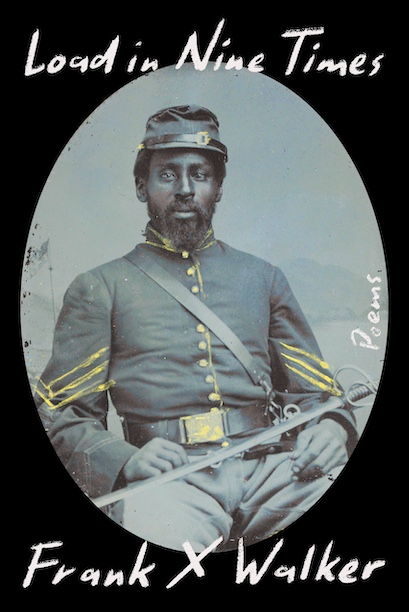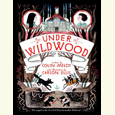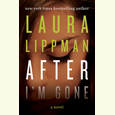When the Looking Changes
Critic and author Teju Cole thinks about photography and politics
FROM THE CHAPTER 16 ARCHIVE: This article originally appeared on March 22, 2018.
***
There is a photograph in Teju Cole’s Blind Spot that was taken at the Edmund Pettus Bridge in Selma, Alabama. In 1965, when hundreds of civil-rights activists marched across it, state troopers met them with swinging nightsticks and tear-gas canisters. It is an infamous moment in the history of the civil-rights movement—a spectacle of gruesome violence known as “Bloody Sunday.”
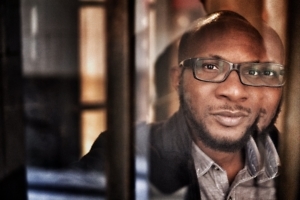
But Cole’s photograph is from a sleepy Sunday morning fifty years later. No people are in it. It does not capture the arc of the bridge or look across it. Rather, it gazes at a graying building at the edge of downtown that blocks off a crisp blue sky. The bridge is in the foreground, just beginning to rise.
Cole recalls the words of James Baldwin: “I could not suppress the thought that this earth had acquired its color from the blood that had dripped down from these trees.” He also relates a story from The Selma Times-Journal about a stolen parade costume: “Sparky the Fire Dog,” the clip reads, was “found weather-damaged, dirty, torn and missing pieces behind the old Pancake House.”
Blind Spot traffics in such irony and ambiguity. For most of us, iconic photographs showcase the moral clarity of the civil-rights movement. We know the mangled corpse of Emmett Till, the white mob outside Central High School, the police dogs of Birmingham, the Memphis sanitation workers whose signs declare, “I AM A MAN.”
But Cole sees complications. “Photography is quite good at metaphor and at evocation,” he writes. “But politics is elsewhere, hard to compress into a rectangular frame. At best, a photojournalistic image can show some of the theater of politics. In the process, it can bowdlerize what is political about politics. Unfortunately the public often reads this as political truth in itself.”
Cole writes the “On Photography” column for The New York Times Magazine and is the author of the essay collection Known and Strange Things, as well as the novels Open City and Every Day is for the Thief. In Blind Spot, he collects more than 150 of his own photographs and pairs each with a brief piece of writing.
In 2011, Cole temporarily lost vision in one eye. “The photography changed after that,” he writes. “The looking changed.” His striking images are rich with color and dense with geometry. They rarely feature people, but they evoke a human spirit.
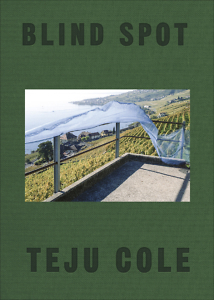 The book includes pictures from Brazil, Nigeria, Lebanon, South Korea, Indonesia, India, Kenya, New Zealand, and throughout Europe and the United States, emphasizing the continuity between them. He repeats visual themes, finding beauty in shadows and thin lines, in photos of other photos representing tourist attractions, and in the backs of people’s heads. He conjures the sacred from the mundane: a torn translucent covering at a construction site, the gap between sections of a couch.
The book includes pictures from Brazil, Nigeria, Lebanon, South Korea, Indonesia, India, Kenya, New Zealand, and throughout Europe and the United States, emphasizing the continuity between them. He repeats visual themes, finding beauty in shadows and thin lines, in photos of other photos representing tourist attractions, and in the backs of people’s heads. He conjures the sacred from the mundane: a torn translucent covering at a construction site, the gap between sections of a couch.
“What I love about Bali is what I love about Sao Paulo, Nairobi, Seoul, and Reykjavik: the material evidence of human life, which goes on in spite of the world’s enmity,” he writes. For him, there is a tragic allure in left-behind things. One photograph shows five folding chairs sandwiched between a van and a fire hydrant, an image he took on the way to a rally for Black Lives Matter.
Race is a ghost here, hovering within gorgeously stark images. At the Sixteenth Street Baptist Church in Birmingham, where a white supremacist’s bomb killed four black girls in 1963, he photographs the glass doors tucked under the main stairs. At a park in South Carolina, where in 2015 a white policeman killed an unarmed black man named Walter Scott, Cole photographs a t-shirt hung on a chain-link fence and embellished with a hand-scratched prayer.
Through Cole’s gentle nudges and slippery juxtapositions, Blind Spot implies a larger global struggle for human rights. It is not in the American South but in Zurich, amidst the clean luxury of a modern hotel overlooking a lake, where Cole recalls the words Martin Luther King Jr, once uttered at a sweaty rally in Mississippi: “I’m tired of shooting. I’m tired of hatred. I’m tired of selfishness. I’m tired of evil.” He might be tired still.
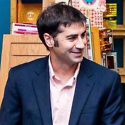
Aram Goudsouzian chairs the history department at the University of Memphis. His most recent book is Down to the Crossroads: Civil Rights, Black Power, and
